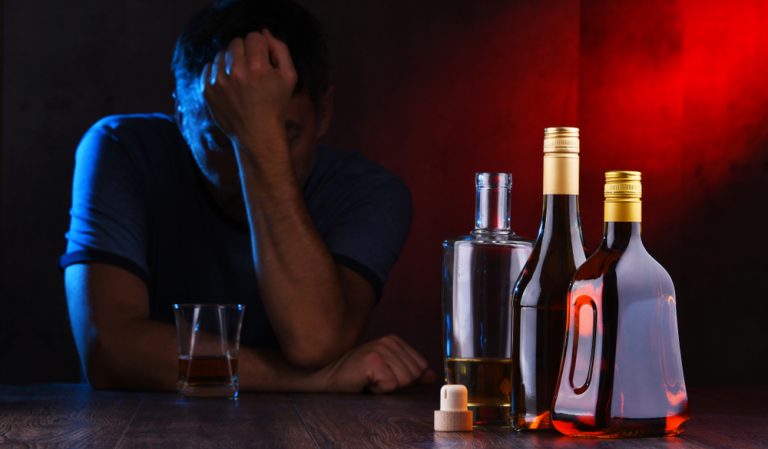What’s more, because your body gradually gets used to alcohol, you may find you need to drink more each night to get the same relaxing sensations. Using alcohol to sleep might seem like a good idea at first, but after a while you notice the long-term problems. Unfortunately, if you need alcohol to sleep, you may struggle long-term. Alcohol can help to reduce feelings of stress, and make you feel more comfortable drifting off into oblivion.
Alternatives to Alcohol for Sleep
- If your partner likes it warmer, consider having a separate comforter for each side of the bed.
- “The bidirectional relationship between e[…]nd sleep improvement.” American Journal of Lifestyle Medicine.
- This can cause or worsen a condition called obstructive sleep apnea , in which the tongue relaxes during sleep and obstructs the airway.
- You might also smoke cigarettes or cannabis when drinking, which can also contribute to sleep problems.
- But they may not be prescribed beyond this as there’s a risk of side effects like withdrawal, rebound insomnia, addiction, and overdose when mixed with alcohol.
- Stimulants such as caffeine should be avoided, especially at night.
Plus, after three weeks without alcohol you will almost certainly be sleeping better, which also has mood-improving benefits. When people in America notice they’ve developed issues falling asleep, their first reaction is often to have a drink. However, alcohol is actually detrimental to getting a good night’s rest. Predicting daytime and nighttime drowsy driving crashes based on crash characteristic models.
- This process helps you to change your sleep habits, which could include cutting down on alcohol too close to bedtime.
- There are plenty of studies to back this up, most notably one published in JMIR Mental Health which showed that consuming moderate amounts of alcohol decreased sleep quality by 9.3 percent.
- Many people with insomnia are able to fall asleep fast at bedtime, but then wake up in the middle of the night.
How does alcohol affect people with insomnia?
Take a breath in, then breathe out slowly while saying or thinking the word, “Ahhh.” Take another breath and repeat. Get up, leave the bedroom, and do something relaxing, such as reading, meditating, or taking a bath. Two powerful weapons in the fight against insomnia are a quiet, comfortable bedroom and a relaxing bedtime routine. Both can make a big difference in improving the quality of your sleep. Lifestyle changes such as avoiding alcohol hours before sleep may be sufficient for treating mild, short-term insomnia. Having a beverage containing alcohol in the evening from time to time may slightly disrupt sleep, but consuming alcohol for multiple nights in a row or every night carries a greater risk of insomnia.
Practical Tips to Deal with Insomnia After Quitting Alcohol
But I find a tremendous amount of fulfillment in the idea that something I’ve learned can help others break free from the same horrible state of body and mind that once tortured me. I would also make sure to integrate some of the lifestyle strategies from the section above. can’t sleep without drinking Since inositol can contribute to episodes of low blood sugar, it might be wiser to try niacinamide first if you’re among the many alcoholics prone to hypoglycemia. Before proceeding, I’ll briefly discuss four additional nutrients that are effective for insomnia.

Managing Alcohol Withdrawal Insomnia: Tips for a Good Night’s Sleep

You might also want to cut down on the number of nights you drink to give your body more chances of getting a good night of alcohol-free sleep. We’ve covered more on how long before bed to stop drinking alcohol here. RISE can tell you when to do 20+ good sleep habits at the time that’ll make them most effective for you. They may recommend different treatments for different types of insomnia. There are ways to stop alcohol from messing with your sleep, though. And, as long as you don’t have an alcohol use problem, you may not have to give up drinking altogether.
Complementary therapies like relaxation and biofeedback therapy, yoga, mindfulness meditation, progressive muscle relaxation, and aromatherapy can all assist with your sleeping patterns. Getting to sleep after you quit drink entirely can also be a challenging experience, though it gets easier with time. If this is the case, try to find some relaxing way to ease your mind when you go to bed. Some people also find journaling helps them to reduce feelings of anxiety. The key to success is sticking to your new routine as much as you can.

Press Play for Advice On Sleep Hygiene
Once you abstain from it, your brain can start rebalancing itself, leading to better cognition, improved concentration, and memory – crucial elements for professional success. For example, the liver, harmed by excessive alcohol, can start healing. Calories saved from alcohol can also contribute to weight loss and better cardiovascular health. Furthermore, breaking free from alcohol dependency can also improve the skin, as alcohol causes dehydration leading to premature skin aging. Lastly, solid sleep can help maintain a strong immune system, reducing the risk of falling ill and ensuring a more consistent work schedule.
This can lead to additional effects like daytime sleepiness and grogginess. The impact of drinking on insomnia may be particularly acute in older adults. Researchers have found that insomnia is a risk factor for alcohol abuse.
Leave a Reply